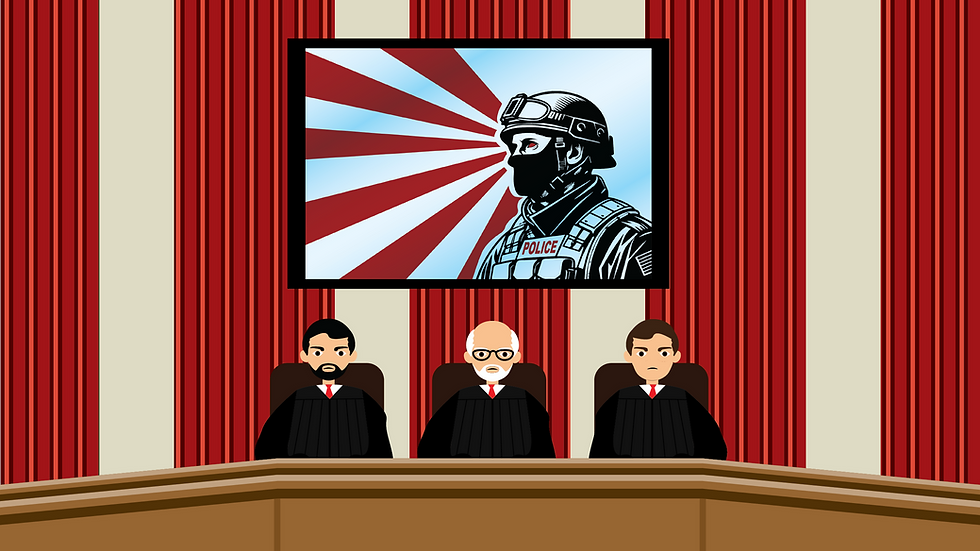Appeals court orders ICE to stop violating the 4th Amendment in Los Angeles
- Kyle Ferreira

- Aug 12, 2025
- 3 min read

An Appellate court upheld an order directing the Trump administration to stop violating the 4th Amendment by detaining people in Los Angeles without "reasonable suspicion."
On June 6, ICE set upon Los Angeles and began "Operation at Large," a militarized effort to round up and detain alleged illegal immigrants. ICE quickly exceeded its claimed goals and began detaining immigrants and citizens alike without the "reasonable suspicion" required by the 4th Amendment.
Victims of unlawful ICE detention and arrest requested that the district court issue a temporary restraining order (TRO) directing the Trump administration to stop what the district court called "a policy and practice of effectuating warrantless arrests ... [and] of not identifying themselves or explaining the basis for an arrest upon taking someone into custody."
The district court granted the TRO and the Trump administration promptly appealed to the 9th Circuit Court of Appeals. On Aug 1, the 9th Circuit upheld the TRO and ordered that ICE must comply with constitutional standards when conducting its operations in Los Angeles.
The TRO ordered the Trump administration to stop relying solely on four factors— ethnicity, speaking Spanish, place of work and presence in a particular location—when detaining people.
"Reasonable suspicion cannot be based on generalizations that, if accepted, would cast suspicion on large segments of the lawabiding population,” said the 9th Circuit.
The district court found that ICE was basing it tactics on exactly those types of generalizations, often detaining people based on no more than their apparent ethnicity or where they work.
The district court found that ICE has targeted immigrants without regard for evidence of illegal status. ICE frequently detained immigrants in public places including bus stops, car washes, street vendors, Home Depot, farms, a church and more. American citizens have also found themselves detained and questioned based on no more than how they look or speak.
"Defendants [ICE and the Trump administration], however, provide no evidence—not even a bald assertion—that any of the public places or types of businesses they are targeting are used exclusively, or even predominantly, by individuals illegally in the country," said the 9th Circuit.
The 9th Circuit agreed with the district court that qualities like race or place of work are such weak indicators of illegal immigrant status that they are insufficient to support "reasonable suspicion." Otherwise, ICE can target people based on a broad profile and large numbers of law-abiding citizens will be swept into the category of people ICE can detain.
However, the 9th Circuit emphasized the limits of the district court's TRO. Specifically, ICE may still consider a person’s ethnicity or the language they speak but those factors cannot be the only basis for justifying detention.
"Courts routinely assess specific groupings of factors to determine whether those factors together give rise to reasonable suspicion," the 9th Circuit said. "If future stops are based on additional, relevant facts, those scenarios will be unaffected by the TRO."
An emergency appeal to the Supreme Court is likely the Trump administration's next step.
The practice of using the Supreme Court's emergency docket to overturn lower court orders has been very successful thus far. Given the Supreme Court's sympathetic attitudes to the Trump administration's actions, this victory for 4th Amendment rights may be short-lived.









